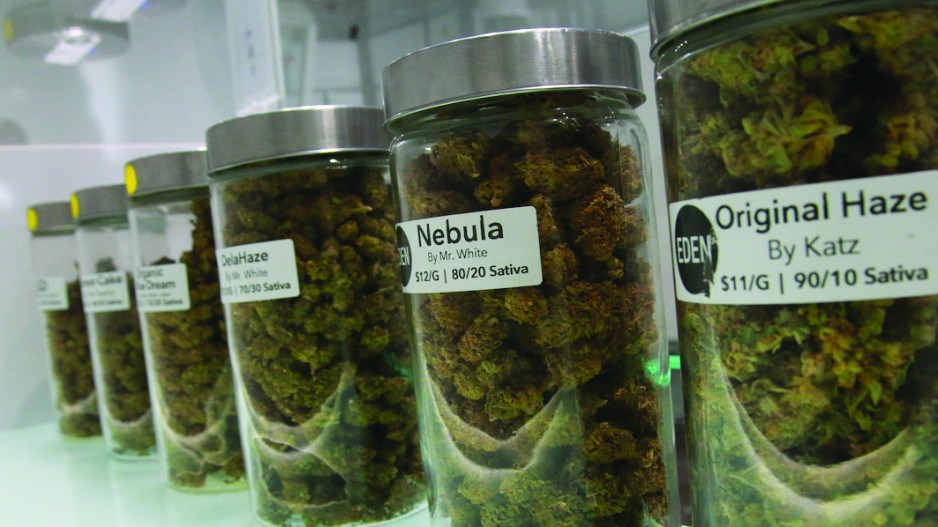The B.C. government expects to rake in $200 million in revenue from cannabis sales taxes by March 2021, it revealed as part of its February 20 budget.
That revenue would start to flow once the federal government legalizes adult use of cannabis – something that is expected later this year.
Provincial revenue expectations are much higher than past federal projections and include $50 million in the 2018-19 fiscal year, which starts April 1.
The B.C. government expects that in each of the 2019-20 and 2020-21 fiscal years it will generate $75 million from cannabis tax revenue.
In order to meet those targets, British Columbians pot buyers would have to account for 25% of all government cannabis revenues in Canada.
Federal Finance Minister Bill Morneau and provincial premiers on December 11 announced a deal that held that the federal government would be the only government to levy a tax on cannabis. Money raised from that 10% excise tax will be split with the federal government taking 25% and the remainder going to the provinces, with each province getting tax revenue that came from sales in its jurisdiction.
The federal government in December projected that the tax would bring in $400 million per year and it capped the amount of money that it will take annually from the tax at $100 million.
Any tax revenue generated above that $400 million total will be returned to the province from which it was generated.
The 2016 census found that B.C. has 4,648,055 residents, or about 13.2% of the Canadian population. British Columbians, however, consume cannabis more than the Canadian per-capita average, according to government surveys.
A 2015 Health Canada survey found that 17.3% of adult British Columbians had consumed cannabis within the past year. That was the highest percentage among provinces and was up from a 2012 Statistics Canada survey that found that 14.2% of B.C. residents older than 15 years old had consumed cannabis within the previous 12 months. That result put B.C. second to Nova Scotia, where 14.8% of residents had smoked marijuana during that time.
The B.C. government’s estimate of receiving $50 million in the 2018-19 fiscal year, instead of the $75 million expected in following years, is likely because the 2018-19 fiscal year will start with cannabis being illegal.
While the federal government’s original goal was to have cannabis legal by July 1, or one quarter of the way through the fiscal year, Prime Minister Justin Trudeau has since revised that timeline to be “summer.”
Indeed, Bill C-45 remains before the Senate, where senators earlier this month agreed to hold a vote to potentially pass the bill as late as June 7.
Royal assent could take place soon afterward if the vote is successful but the expectation is that, even then, it could take provinces up to three months following royal assent to pass regulations to prepare for cannabis sales, based on the text of the federal law.
To legally implement regulations, provinces must wait until the federal bill has passed although provinces can draft regulations in advance of that law passing based on an expectation that the bill’s draft text is adopted, said Borden Ladner Gervais partner Warren Learmonth, whose practice includes helping cannabis companies go public.
“I’m sure [the province is] operating on the assumption that the law is going to be passed as is, and are proceeding on that basis, but they can’t really put the final stamp on it until they know for the sure that the law is being passed in that form,” he said.



